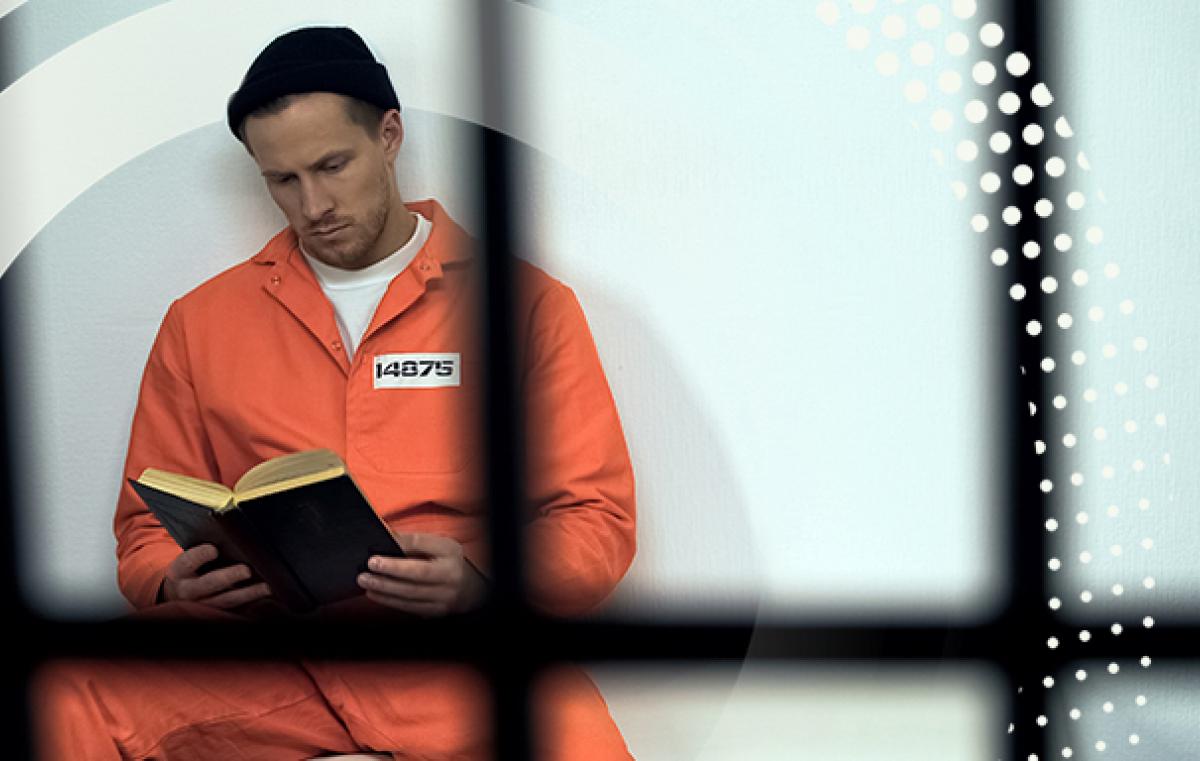Rehabilitating Prisoners with Philosophy Studies
A joint dialogue about ethical issues, between members of the Department of Jewish Philosophy and prisoners, has led to mutual personal growth and spurred the rehabilitation process

Can Jewish philosophy help prisoners in the process of rehabilitation and release, and in their reintegration into society? Bar-Ilan University’s Department of Jewish Philosophy believes that the answer is “yes.” Students and faculty members in the department’s Jewish-Social Thought Program are holding a series of meetings with inmates who are in the process of rehabilitation, in the framework of the “Maftehot” (“Keys”) Hostel. Hostel residents joined academic sessions at the university – as part of a philosophy dialogue workshop. The workshop hosted lecturers for talks and lectures on ethics, morals, and human relationships inspired by Martin Buber, who said, “All actual life is encounter.”
Martin Buber’s philosophy of dialogue, taught throughout the year in the social action workshop of the Jewish-Social Thought Program, is an inspiration for the entire program. According to the philosopher Martin Buber, truth emerges in a person’s encounter with another person, an authentic, unmediated encounter between two or more individuals, that takes place out of desire and kindness. In such an encounter, an inconceivable transformation occurs. In the meetings held between students and the released prisoners, a sincere and deep discourse was willingly created. The encounter with the “other,” a stranger, with one who is different from me, was profound and intimate, personal and on equal footing, breaking stigmas and labels, reducing alienation, and especially presenting the “other” and validating the person’s very existence. Among the issues discussed were inner peace, responsibility and affinity, relationships, creativity and hope.
Jewish and Muslim hostel members attended the meetings. The Jewish sources (e.g., the Priestly Blessing, Song of Songs), Jewish philosophical discourse (e.g., the concept of forgiveness of the German-Jewish philosopher Moses Mendelssohn, or the concept of responsibility of the French-Jewish philosopher Emmanuel Levinas) aroused great interest and curiosity, fuelled by their desire to study and search for a connection between philosophy and their personal lives.
At the end of the series, the participants received a graduation certificate. For most, this was their first encounter with an academic institution. For those who are university graduates, the meetings gave them a connection to the positive points in their past. One participant even spoke openly about his desire to study at a university.
The idea for the hostel meetings was conceived by the chair of the Department of Jewish Philosophy (Jewish Thought), Prof. Hanoch Ben-Pazi, who had a dream of teaching ethics in prisons. He turned to Dr. Oz Bluman, who leads the Beit Midrash course that explores the challenges of Israeli society, and to Yael Cherniak, a department PhD candidate (writing her dissertation on Buber and Marcel) who leads the series of meetings and the social action workshop, and together they began to develop the program.
Since the prisons were closed to visitors during the COVID-19 pandemic, the program staff turned to the Prisoner Rehabilitation Authority, clarified which frameworks operate within the Authority, and contacted the “Keys” Hostel, a treatment hostel for inmates imprisoned for severe domestic violence. The idea was to provide support through philosophical thought, as part of the important therapeutic and rehabilitative work done at the hostel, in order to eradicate the violence with the release of the inmates from prison, and their gradual return to their families or to a new relationship.
The students said that the meetings with the hostel members led to a more profound consideration of the tension between freedom and slavery, and underscored the importance of combining theoretical academic study with practical action. This allowed for a process of personal development, and inclusion of complexity. They understood that as students their role is to view people who have committed a very serious misdeed against their life partners, but who wish to rectify their actions, according to the Jewish notion of “the gates of repentance have not been locked.” Some have also gained insights into life regarding the mental and spiritual depths that are found in every person. The process gave them hope that through real dialogue we can create a better future.